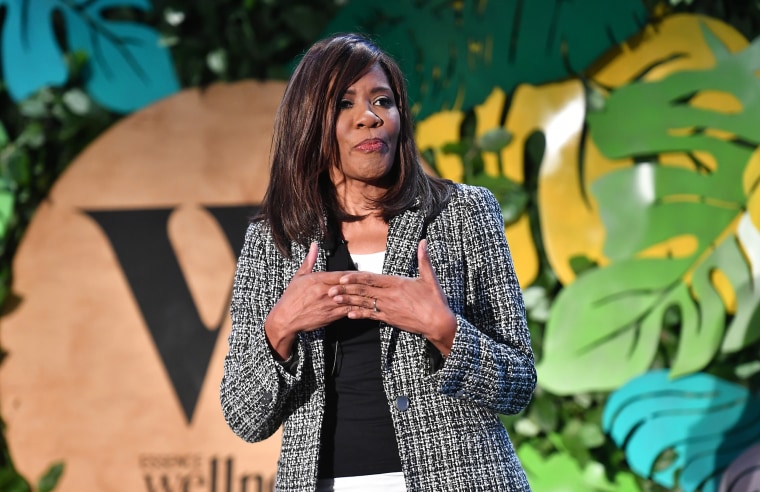WASHINGTON — The president of the American Medical Association, Dr. Patrice Harris, Friday called the shortages of protective gear for medical professionals treating coronavirus cases “unacceptable.”
As head of the largest association of physicians in the United States, Harris told NBC News she had personally asked President Donald Trump for a federal tracking system to ensure hospitals and doctors in the most urgent need of supplies are prioritized, as well as more ventilators and testing supplies.
“As physicians, when we go into this profession we expect and accept some level of risk for infection. But to have our physicians on the frontline greeting patients who are suspected of — or do have — COVID-19 who don’t have masks, gowns and gloves is just unacceptable,” Harris said in her first national interview since the coronavirus crisis emerged.
“We need to see masks on their faces, gowns on their body,” Harris said.
Nearly 15,000 cases of COVID-19, the illness caused by the virus, had been confirmed in the U.S. as of Friday afternoon, according to the Centers for Disease Control and Prevention, and at least 200 people have died.
Harris told NBC News she and other physicians raised alarms about equipment shortages in an online meeting with Trump earlier this week.
“I’m hearing that physicians just don’t have access, that they are using one mask all day and then sometimes having to go home and clean that mask,” she said, calling the situation “dire.”
“What we need to see is results,” she stressed. “Now is not the time to have any of our physician colleagues out of the workforce” because they became unnecessarily infected.
The federal government needs to create a ‘Manhattan-type Project’ effort,” Harris said, referring to a research and development undertaking during World War II that produced the first nuclear weapons.
Harris spoke out as the Senate negotiated an emergency rescue measure to respond to the crisis that is likely to top $1 trillion.
In an earlier legislative package, Congress appropriated funding to assist hospitals with more bed space and medical supplies. But it did not create a direct pipeline to address urgently needed supplies and equipment such as masks, ventilators and personal protective equipment for front-line health care workers.
The proposal currently under consideration, from Senate Majority Leader Mitch McConnell, also does not answer pleas by the nation’s top medical professionals for a direct pipeline of funding for equipment and protective gear.
On Thursday, the AMA joined the American Hospital Association and American Nursing Association in asking for $100 billion in direct financial assistance from Congress. Some hospitals have seen an influx of patients and are losing as much as $1 million per day.
Earlier Friday, Trump said in a news conference that he is activating the 1950 Defense Production Act, which allows him to direct U.S. manufacturers to produce urgently needed items like ventilators.
Yet it’s unclear how it will quickly get supplies into the hands of nurses and doctors on the frontlines as the pandemic spreads across the nation, said Harris. “They need it in their hands,” she said.
She also noted there aren’t just shortages in personal protective gear. There are also supply problems with swabs needed to perform tests, as well as chemical reagents needed for the labs to process the tests.
As the number of infected people grows across the nation, Harris also raised the potential need for “redeployment” of doctors and new training. “It would be something that’s close to your area of specialty,” she said, noting there’s already a growing need for “help with screening” the infected.
“This is an all-hands-on-deck proposition and we will have to take this as it comes. The first priority would be to keep the physicians and nurses on the frontlines safe.”

